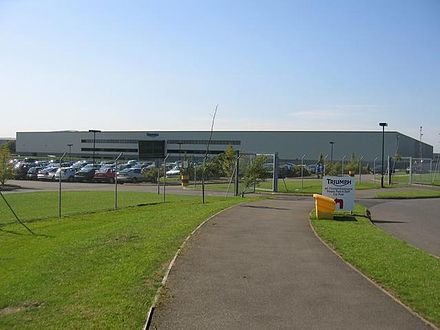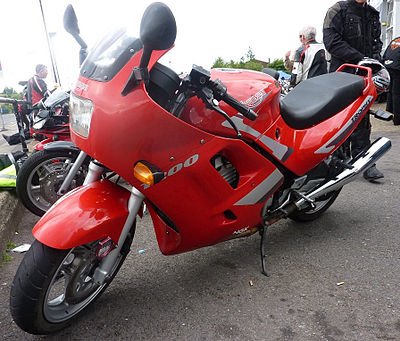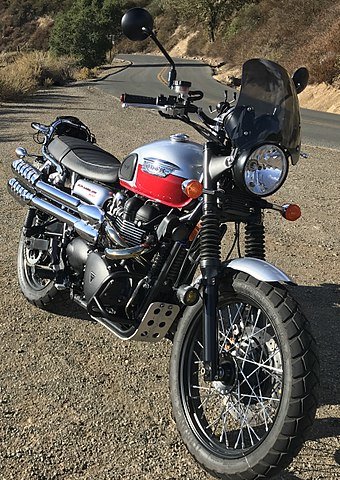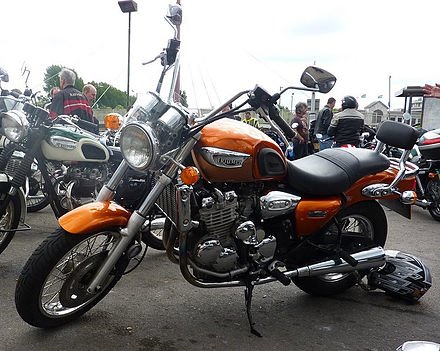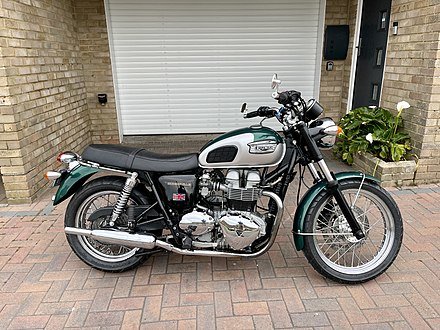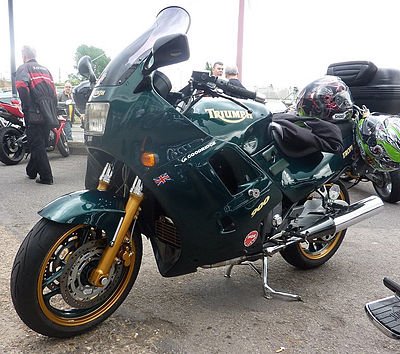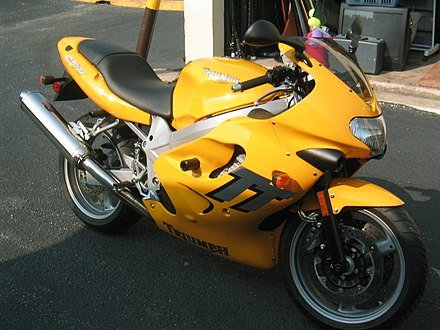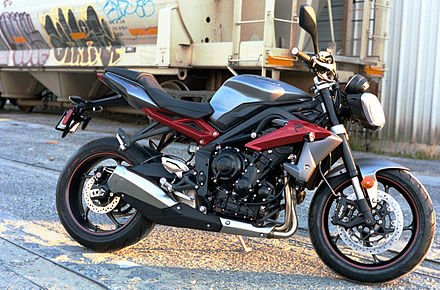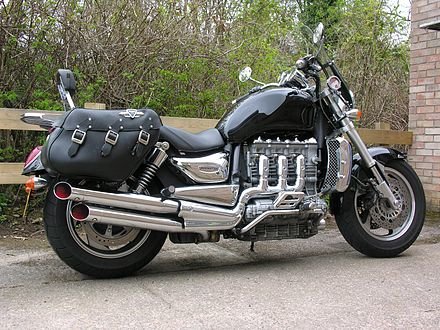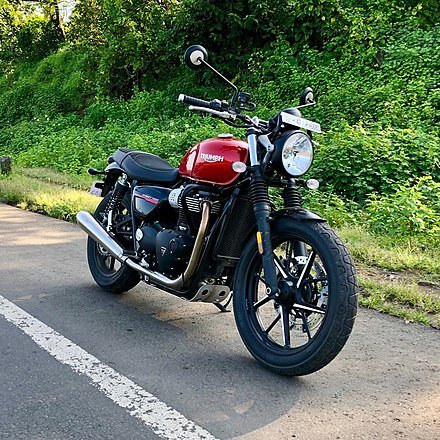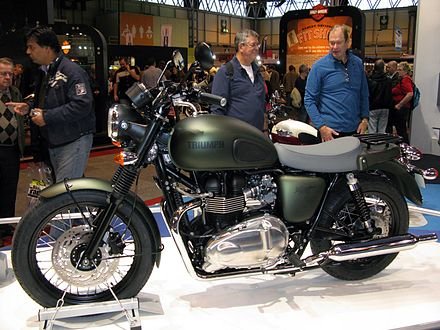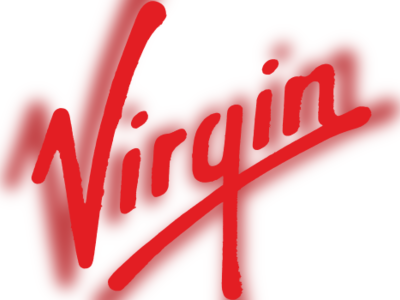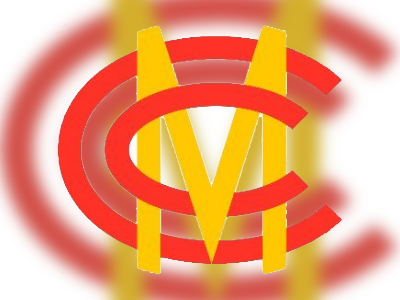British Heritage
Remember, Cherish, Learn.
beta
Triumph Motorcycles - 120 years of Heritage
Powering the Wheels of British Heritage for Over a Century.
Triumph Motorcycles Ltd., the United Kingdom's largest domestically owned motorcycle manufacturer, represents a remarkable story of British heritage, entrepreneurship, innovation, and perseverance. The Triumph name carries a weighty legacy dating back to 1902, a time when the British motorcycle industry was in its infancy.
The Triumph legacy took flight with Triumph Engineering, the company that spearheaded motorcycle production from the dawn of the 20th century. In 1983, when the original entity went into receivership, it fell to British entrepreneur John Bloor to breathe new life into this revered brand.
This reincarnation marked the start of Triumph Motorcycles Ltd., initially called Bonneville Coventry Ltd. The name 'Triumph' was purchased by Bloor from the Official Receiver, an embodiment of the brand's potent heritage. Though Triumph's manufacturing facilities at the time couldn't compete with the technologically superior Japanese competitors, Bloor perceived the challenges as stepping stones rather than stumbling blocks.
Bloor put the rebirth of Triumph on hold while revamping the company's approach to design and production. He assembled a talented team of designers who, inspired by a fact-finding trip to Japan, embraced new manufacturing techniques and computer-controlled machinery. The result was the introduction of new Triumph models that combined tradition with cutting-edge technology.
From 1983 to 1988, under license from Bloor, Les Harris of Racing Spares in Newton Abbot, Devon, continued producing the Bonneville, a symbolic bridge connecting Triumph's past and future.
In 1988, the reinvigorated Triumph roared back into the industry spotlight with a new factory in Hinckley, Leicestershire. The first motorcycles produced here arrived in 1991, a triumphant return after an estimated investment of between £70 million and £100 million by Bloor.
Parallel to the company's production growth, Triumph began expanding its footprint across the globe. Triumph Deutschland GmbH and Triumph France SA marked the company's first venture into overseas markets. In 1994, Triumph Motorcycles America Ltd. was established, further broadening the brand's global presence.
A fire in March 2002 caused significant damage to the main Triumph factory in Hinckley. Despite the catastrophe, the company demonstrated impressive resilience, rebuilding the facility and resuming production by September that year.
Triumph also looked to Asia, particularly Thailand, to augment its production capabilities. From 2002 onwards, Triumph constructed and operated three manufacturing facilities in Chonburi, Thailand. The company's Thai operations were later expanded to include high pressure die-casting and machining. Triumph Motorcycles (Thailand) Limited, a 100% UK-owned company, currently employs around 1,000 staff and produces over 130,000 motorcycles annually.
Triumph, under the leadership of John Bloor and later his son, Nick Bloor, has continually strived for innovation. The company launched a series of new models, exploiting both the demand for retro-styled motorcycles with modern engineering and the niche market of triple engine motorcycles. The Triumph Thunderbird 900, Bonneville, and Thruxton, among others, are quintessential examples of this fusion of tradition and modernity.
The company's revolutionary 2,294cc Rocket III cruiser, introduced in 2004, garnered significant attention, with the first 300 models sold before production even began. The 675cc Street Triple, Triumph Tiger 800, and Tiger 800 XC further solidified Triumph's position in the market.
In 2018, Triumph announced the Triumph Factory Custom (TFC) range, a line of high-spec, limited edition motorcycles. The range, including the Thruxton TFC and the Rocket 3 TFC, represented the pinnacle of Triumph's design and innovation.
Triumph's impact extends to the world of motorsports as well. From the 2019 season, Triumph became the controlled-engine supplier for the FIM Moto2 World Championship, a contract extended in 2021 for at least another three years. Triumph's engines, developed from the Street Triple RS engine, are specially tuned for racing, offering peak power of at least 138PS.
Triumph's global success is also reflected in its robust financial performance. In 2017, Triumph's revenue saw an impressive 22 per cent increase to £498.5 million, translating to pre-tax profits of £24.7 million, up from £16.6 million the previous year.
Despite the majority of sales occurring overseas, the 9,400 motorcycles sold in the UK in 2017 represents a record for the company. This is a testament to Triumph's significant contribution to the British economy and its enduring appeal among the home audience.
Triumph's journey from a fledgeling motorcycle manufacturer to a global leader in the industry is a testament to British resilience and innovation. In the process, the company has become an integral part of Britain's industrial heritage.
From its classic designs that hark back to the glory days of British motorcycling to its contemporary models that challenge the norm, Triumph represents the best of British manufacturing prowess. As the brand looks to the future, it continues to embody the spirit of British heritage, even while incorporating global influences and cutting-edge technology.
With 120 years of heritage and counting, Triumph Motorcycles stands as a shining example of British craftsmanship, design, and innovation. Its contribution to the UK's industrial landscape is immeasurable, and its legacy will undoubtedly continue to inspire future generations of motorcycle enthusiasts both at home and abroad.
The Birth of Triumph and its Legacy
The Triumph legacy took flight with Triumph Engineering, the company that spearheaded motorcycle production from the dawn of the 20th century. In 1983, when the original entity went into receivership, it fell to British entrepreneur John Bloor to breathe new life into this revered brand.
This reincarnation marked the start of Triumph Motorcycles Ltd., initially called Bonneville Coventry Ltd. The name 'Triumph' was purchased by Bloor from the Official Receiver, an embodiment of the brand's potent heritage. Though Triumph's manufacturing facilities at the time couldn't compete with the technologically superior Japanese competitors, Bloor perceived the challenges as stepping stones rather than stumbling blocks.
Rebirth and Modernisation of Triumph
Bloor put the rebirth of Triumph on hold while revamping the company's approach to design and production. He assembled a talented team of designers who, inspired by a fact-finding trip to Japan, embraced new manufacturing techniques and computer-controlled machinery. The result was the introduction of new Triumph models that combined tradition with cutting-edge technology.
From 1983 to 1988, under license from Bloor, Les Harris of Racing Spares in Newton Abbot, Devon, continued producing the Bonneville, a symbolic bridge connecting Triumph's past and future.
In 1988, the reinvigorated Triumph roared back into the industry spotlight with a new factory in Hinckley, Leicestershire. The first motorcycles produced here arrived in 1991, a triumphant return after an estimated investment of between £70 million and £100 million by Bloor.
Expanding Horizons: Triumph's Global Success
Parallel to the company's production growth, Triumph began expanding its footprint across the globe. Triumph Deutschland GmbH and Triumph France SA marked the company's first venture into overseas markets. In 1994, Triumph Motorcycles America Ltd. was established, further broadening the brand's global presence.
A fire in March 2002 caused significant damage to the main Triumph factory in Hinckley. Despite the catastrophe, the company demonstrated impressive resilience, rebuilding the facility and resuming production by September that year.
Triumph also looked to Asia, particularly Thailand, to augment its production capabilities. From 2002 onwards, Triumph constructed and operated three manufacturing facilities in Chonburi, Thailand. The company's Thai operations were later expanded to include high pressure die-casting and machining. Triumph Motorcycles (Thailand) Limited, a 100% UK-owned company, currently employs around 1,000 staff and produces over 130,000 motorcycles annually.
Triumph: Reinventing British Motorcycle Innovation
Triumph, under the leadership of John Bloor and later his son, Nick Bloor, has continually strived for innovation. The company launched a series of new models, exploiting both the demand for retro-styled motorcycles with modern engineering and the niche market of triple engine motorcycles. The Triumph Thunderbird 900, Bonneville, and Thruxton, among others, are quintessential examples of this fusion of tradition and modernity.
The company's revolutionary 2,294cc Rocket III cruiser, introduced in 2004, garnered significant attention, with the first 300 models sold before production even began. The 675cc Street Triple, Triumph Tiger 800, and Tiger 800 XC further solidified Triumph's position in the market.
In 2018, Triumph announced the Triumph Factory Custom (TFC) range, a line of high-spec, limited edition motorcycles. The range, including the Thruxton TFC and the Rocket 3 TFC, represented the pinnacle of Triumph's design and innovation.
Triumph and Motorsports
Triumph's impact extends to the world of motorsports as well. From the 2019 season, Triumph became the controlled-engine supplier for the FIM Moto2 World Championship, a contract extended in 2021 for at least another three years. Triumph's engines, developed from the Street Triple RS engine, are specially tuned for racing, offering peak power of at least 138PS.
Triumph's Economic Performance
Triumph's global success is also reflected in its robust financial performance. In 2017, Triumph's revenue saw an impressive 22 per cent increase to £498.5 million, translating to pre-tax profits of £24.7 million, up from £16.6 million the previous year.
Despite the majority of sales occurring overseas, the 9,400 motorcycles sold in the UK in 2017 represents a record for the company. This is a testament to Triumph's significant contribution to the British economy and its enduring appeal among the home audience.
A Celebrated British Heritage
Triumph's journey from a fledgeling motorcycle manufacturer to a global leader in the industry is a testament to British resilience and innovation. In the process, the company has become an integral part of Britain's industrial heritage.
From its classic designs that hark back to the glory days of British motorcycling to its contemporary models that challenge the norm, Triumph represents the best of British manufacturing prowess. As the brand looks to the future, it continues to embody the spirit of British heritage, even while incorporating global influences and cutting-edge technology.
With 120 years of heritage and counting, Triumph Motorcycles stands as a shining example of British craftsmanship, design, and innovation. Its contribution to the UK's industrial landscape is immeasurable, and its legacy will undoubtedly continue to inspire future generations of motorcycle enthusiasts both at home and abroad.
- Triumph Motorcycles Ltden.wikipedia.org

